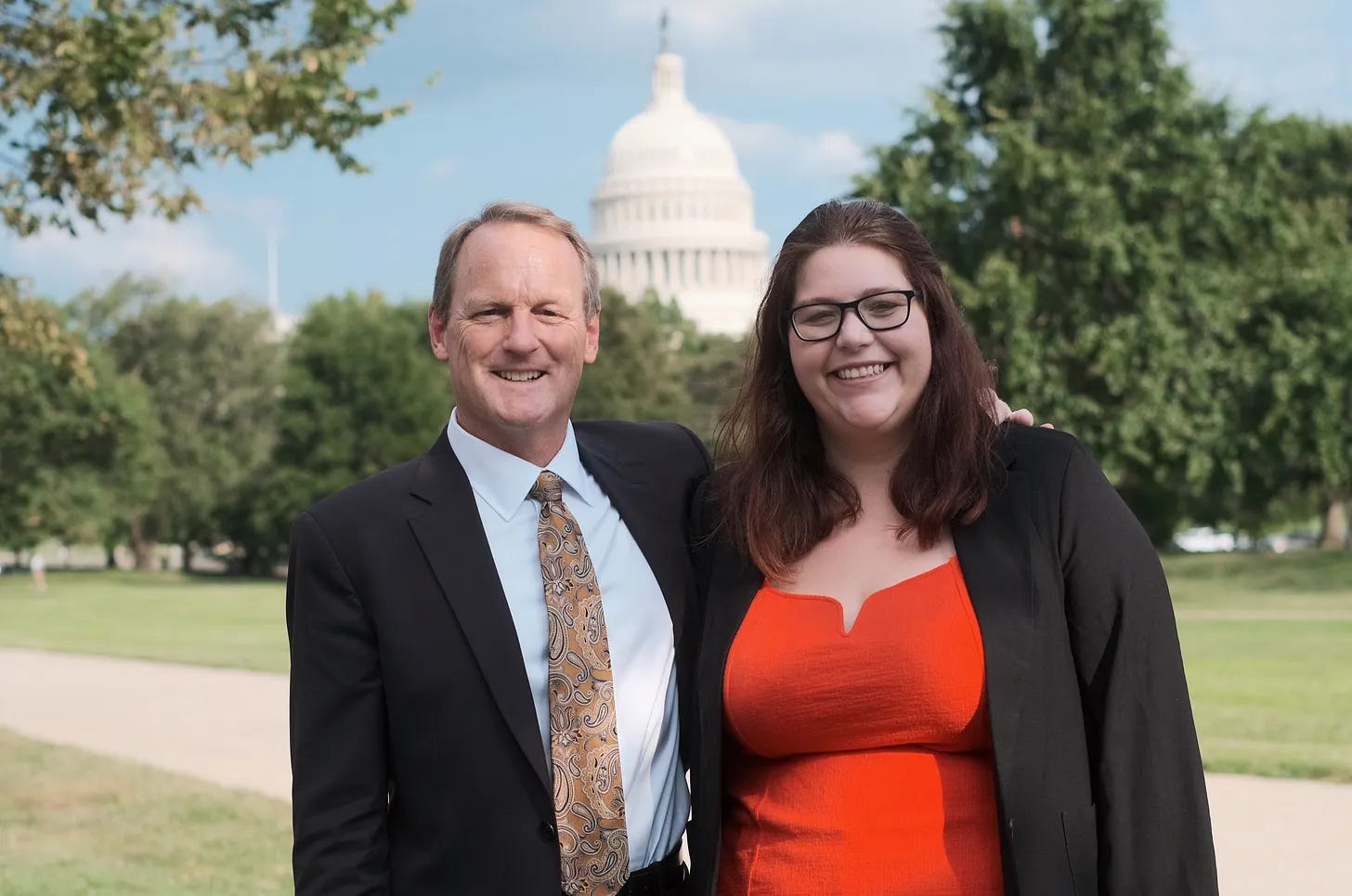Trump Pardons Anti-Abortion Protesters Who Blocked Access to Clinics
At least a dozen of them had been sentenced to prison.

This story has been updated.
By Gary Gately
President Donald J. Trump on Thursday pardoned 23 “peaceful pro-life protesters” who had been convicted of blocking the entrances to abortion clinics, including at least a dozen who had received prison sentences.
“Twenty-three people were prosecuted who should not have been prosecuted,” Trump said as he signed the pardons at the White House. “Many of them are elderly people. This is a great honor to sign this. They will be very happy.”
All the anti-abortion activists Trump pardoned were convicted of violating the 1994 Freedom of Access to Clinic Entrances Act, known as the FACE Act, as well as a 19th-century law designed to protect someone’s exercising a constitutional or legal right. The FACE Act makes it a felony to resort to “threats of force, obstruction or inflict property damage intended to interfere with reproductive healthcare services.”
Ten of those pardoned were convicted of staging a 2020 blockade at Washington Surgi-Clinic in the nation’s capital. Prosecutors said the anti-abortion activists relied on locks, ropes, chains and furniture to block the doors of the clinic while one of them live-streamed the blockade. It continued for several hours before police arrested the activists.
In May, U.S. District Judge Colleen Kollar-Kotelly judge sentenced Catholic anti-abortion activist Lauren Handy, 30, of Alexandria, Virginia, to 57 months in prison.
Kollar-Kotelly rebuked Handy, described by prosecutors as the “criminal mastermind” behind the blockade, during which a nurse sprained her ankle and an activist prevented a woman having labor pains from entering the clinic.
Police said they found five fetuses in Handy’s home after she was indicted.
“Americans have been protesting in favor of and against abortion access for the better part of a century, and there may be nothing more American than these protests,” Kollar-Kotelly told Handy. “But the law does not protect violence or obstructive conduct, nor should it. That’s what you’re being punished for, not your views on abortion nor your very American commitment to peaceful protest.”
Kollar-Kotelly imposed sentences ranging from two years to 34 months on nine Handy’s co-defendants.
Trump also pardoned anti-abortion activists convicted of blockading abortion clinics in New York City, a suburb of Detroit, Nashville and a suburb of that city.
During a 2020 blockade of a New York City abortion clinic, prosecutors said, anti-abortion activist Bevelyn Williams crushed a staff member’s hand while attempting to prevent access to the clinic. Williams was sentenced to 41 months in prison.
And in a 2021 blockade of an abortion clinic in the Nashville suburb of Mount Juliet, Tennessee, a nurse suffered a sprained ankle when a protester pushed her while she was entering the clinic. Chester Gallagher, described by prosecutors as the leader of the blockade, was sentenced to 16 months in prison.
Trump, who granted the pardons a day before he is to address the March for Life in Washington by video, had vowed during his campaign to pardon anti-abortion activists convicted for their roles in blockades at abortion clinics. He said the Biden administration had “weaponized” the Justice Department against the activists to advance its pro-abortion rights agenda.
The Catholic legal organization the Thomas More Society petitioned Trump on January 14 to pardon 21 of the 23 anti-abortion activists.
“They have been heartened during their imprisonment and unjust prosecutions by your repeated messages to them during your campaign, urging them to persevere until you were able to take office, review their cases, and free them,” the organization’s attorneys wrote in a letter to Trump.
After Trump signed the pardons, Steve Crampton, senior counsel at the Thomas More Society, said in a statement: “Today, freedom rings in our great nation. The heroic peaceful pro-lifers unjustly imprisoned by Biden’s Justice Department will now be freed and able to return home to their families, eat a family meal, and enjoy the freedom that should have never been taken from them in the first place.”
Marjorie Dannenfelser, president of the powerful anti-abortion lobby Susan B. Anthony Pro-Life America, also praised Trump for “immediately delivering on his promise to free pro-life protesters … targeted and imprisoned by Biden’s Department of Justice.”
In a statement, Dannenfelser added: “There is no question these prosecutions were political.”
But abortion rights advocates said Trump’s pardons demonstrate his opposition to abortion access, his pledges to leave the issue to the states notwithstanding.
“Donald Trump on the campaign trail tried to have it both ways — bragging about his role in overturning Roe v. Wade while saying he wasn’t going to take action on abortion,” said Ryan Stitzlein, vice president of political and government relations for the national abortion rights organization Reproductive Freedom for All. “We never believed that that was true, and this shows us that we were right.”
The Catholic Church teaches that abortion is a grave sin and that human life must be protected from the moment of conception.
But the Pew Research Center reported in May that about 6 in 10 U.S. Catholics said abortion should be legal in most or all cases. Among Catholic Democrats, 78% said abortion should be legal in most or all cases, while 43% of Catholic Republicans shared that view.
And among Catholics who attend Mass at least weekly, 34% said abortion should be legal in most or all cases. By contrast, 68% of Catholics who attend Mass monthly or less frequently said abortion should be legal in most or all cases.


